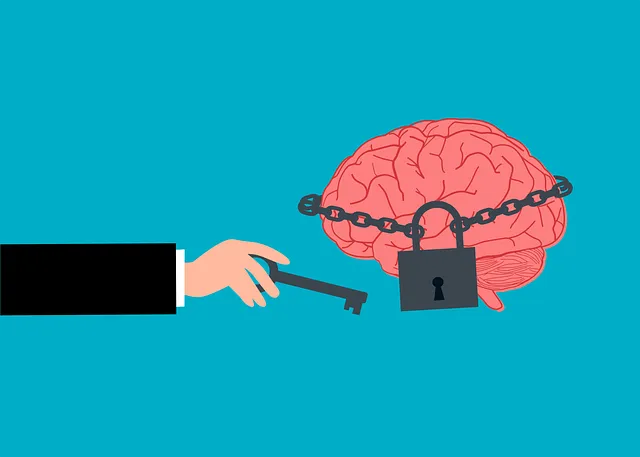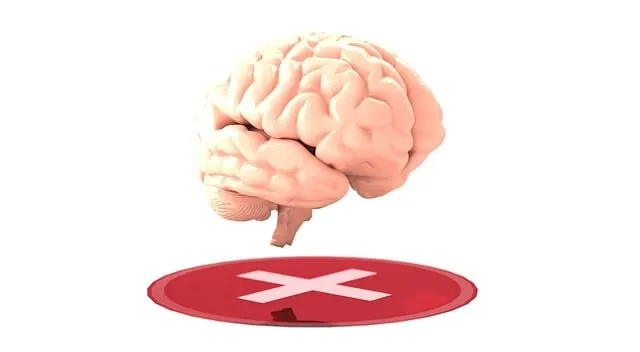Centennial Kaiser Permanente mental health services face misdiagnosis challenges but are transforming care through innovative practices, leveraging advanced data analytics, AI, and evidence-based therapies. They prioritize accurate diagnoses with tools like mental wellness journaling, self-care practices, cognitive-behavioral therapy (CBT), and mindfulness. By fostering open dialogue, tracking symptoms, and analyzing patient datasets, they enhance diagnosis accuracy and personalize treatment plans. Additionally, comprehensive crisis intervention, coaching programs, and holistic education mitigate staff burnout and promote long-term mental well-being, setting new standards in mental health management.
Mental illness diagnoses often involve complex complexities, with misdiagnosis rates worrying healthcare professionals. This article explores efforts to enhance the accuracy of mental health assessments, focusing on innovative techniques, technology integration, and training programs. We delve into the pioneering work of organizations like Centennial Kaiser Permanente, which is at the forefront of revolutionizing mental care through advanced practices. By understanding these challenges and implementing strategic solutions, we can significantly improve patient outcomes in the field of mental health.
- Understanding the Challenge: Misdiagnosis Rates in Mental Health
- The Role of Centennial Kaiser Permanente in Advancing Mental Health Care
- Innovative Techniques for Enhancing Diagnosis Accuracy
- Integrating Technology: Digital Tools for Better Assessment
- Training and Education: Empowering Healthcare Professionals
Understanding the Challenge: Misdiagnosis Rates in Mental Health

Misdiagnosis rates in mental health remain a significant challenge at Centennial Kaiser Permanente and across the nation. Studies show that up to 25% of individuals with mental health conditions are incorrectly diagnosed, leading to delayed or inappropriate treatment plans. This problem is exacerbated by the complexity of symptoms and the vast array of potential disorders, making it difficult for healthcare providers to distinguish between similar conditions.
Effective communication strategies are vital to addressing this issue. Mental wellness journaling exercises and self-care practices can empower patients to actively participate in their care, providing valuable insights that assist clinicians in making more accurate diagnoses. By fostering open dialogue and encouraging individuals to track their symptoms, thoughts, and feelings, healthcare providers gain a deeper understanding of each patient’s unique experience, leading to improved diagnosis accuracy.
The Role of Centennial Kaiser Permanente in Advancing Mental Health Care

Centennial Kaiser Permanente stands as a beacon in advancing mental health care, leveraging its vast resources and expertise to enhance diagnosis accuracy and overall patient well-being. Through innovative research initiatives, they’re at the forefront of integrating cutting-edge technologies like AI and data analytics into mental health assessments, aiming to provide more precise and personalized diagnoses. This approach not only improves treatment plans but also offers Anxiety Relief by empowering both patients and healthcare providers with timely, effective interventions.
The organization’s commitment extends beyond diagnosis, encompassing comprehensive Crisis Intervention Guidance and implementing Emotional Well-being Promotion Techniques. By fostering an environment that prioritizes mental health, Centennial Kaiser Permanente is revolutionizing care delivery, ensuring individuals receive holistic support tailored to their unique needs. Their efforts underscore the belief that accessible, accurate mental health services are pivotal for creating a healthier, more resilient society.
Innovative Techniques for Enhancing Diagnosis Accuracy

At Centennial Kaiser Permanente mental health, efforts to enhance diagnosis accuracy involve exploring innovative techniques that go beyond traditional methods. One such approach is integrating advanced data analytics and machine learning algorithms. By analyzing vast datasets of patient symptoms, behaviors, and treatment outcomes, these tools can identify patterns and predict diagnoses with remarkable precision. This not only aids in early detection but also allows for more personalized treatment plans tailored to individual needs.
Additionally, the development of Mental Wellness Coaching Programs and Crisis Intervention Guidance plays a pivotal role. These programs leverage evidence-based strategies such as cognitive-behavioral therapy (CBT) and mindfulness techniques. Through one-on-one coaching sessions, patients receive guidance not just in managing symptoms but also in fostering resilience against stress and preventing burnout, which is a significant risk factor for mental health deterioration. Such proactive measures ensure that diagnosis accuracy translates into improved long-term outcomes and enhanced mental wellness.
Integrating Technology: Digital Tools for Better Assessment

At Centennial Kaiser Permanente, mental health professionals are leveraging technology to enhance diagnosis accuracy and patient care. Digital tools offer a multitude of benefits, such as improved access to comprehensive patient histories, allowing for more informed decision-making. Advanced algorithms and artificial intelligence can analyze patterns in patient data, helping to identify subtle signs and symptoms that might be missed through traditional methods.
These innovations not only support better diagnosis but also play a crucial role in developing tailored treatment plans. By integrating technology into mental health assessments, professionals can employ Empathy Building Strategies, Risk Assessment for Mental Health Professionals, and Stress Reduction Methods more effectively. This digital transformation ensures patients receive more precise and personalized care, setting new standards in the field of mental health management at Centennial Kaiser Permanente.
Training and Education: Empowering Healthcare Professionals

At Centennial Kaiser Permanente mental health, recognizing the critical role healthcare professionals play in accurate diagnosis, they have made substantial efforts to empower them through enhanced training and education. This initiative is a game-changer in ensuring proper identification of mental health conditions, especially given the complex nature of symptoms presented by patients. By providing comprehensive workshops and ongoing support, professionals are equipped with advanced skills for risk assessment, enabling them to tailor interventions effectively.
The program delves into various aspects, including Depression Prevention strategies and Self-Care Practices, to promote a healthy work-life balance. These measures not only benefit the mental well-being of healthcare providers but also indirectly enhance patient care by reducing burnout rates and increasing attention to detail. Such holistic training reflects the organization’s commitment to fostering a supportive environment for both staff and patients alike.
Mental illness diagnosis accuracy has long been a complex challenge in the field of healthcare, with misdiagnosis rates remaining unacceptably high. However, organizations like Centennial Kaiser Permanente are leading the way in advancing mental health care through innovative techniques and integrated technology. By prioritizing training and education for healthcare professionals, these efforts aim to significantly improve diagnostic accuracy, ensuring individuals receive the appropriate and effective treatment they need. This comprehensive approach, as exemplified by Centennial Kaiser Permanente’s initiatives, holds the key to transforming mental healthcare and enhancing the lives of those affected by mental illness.






